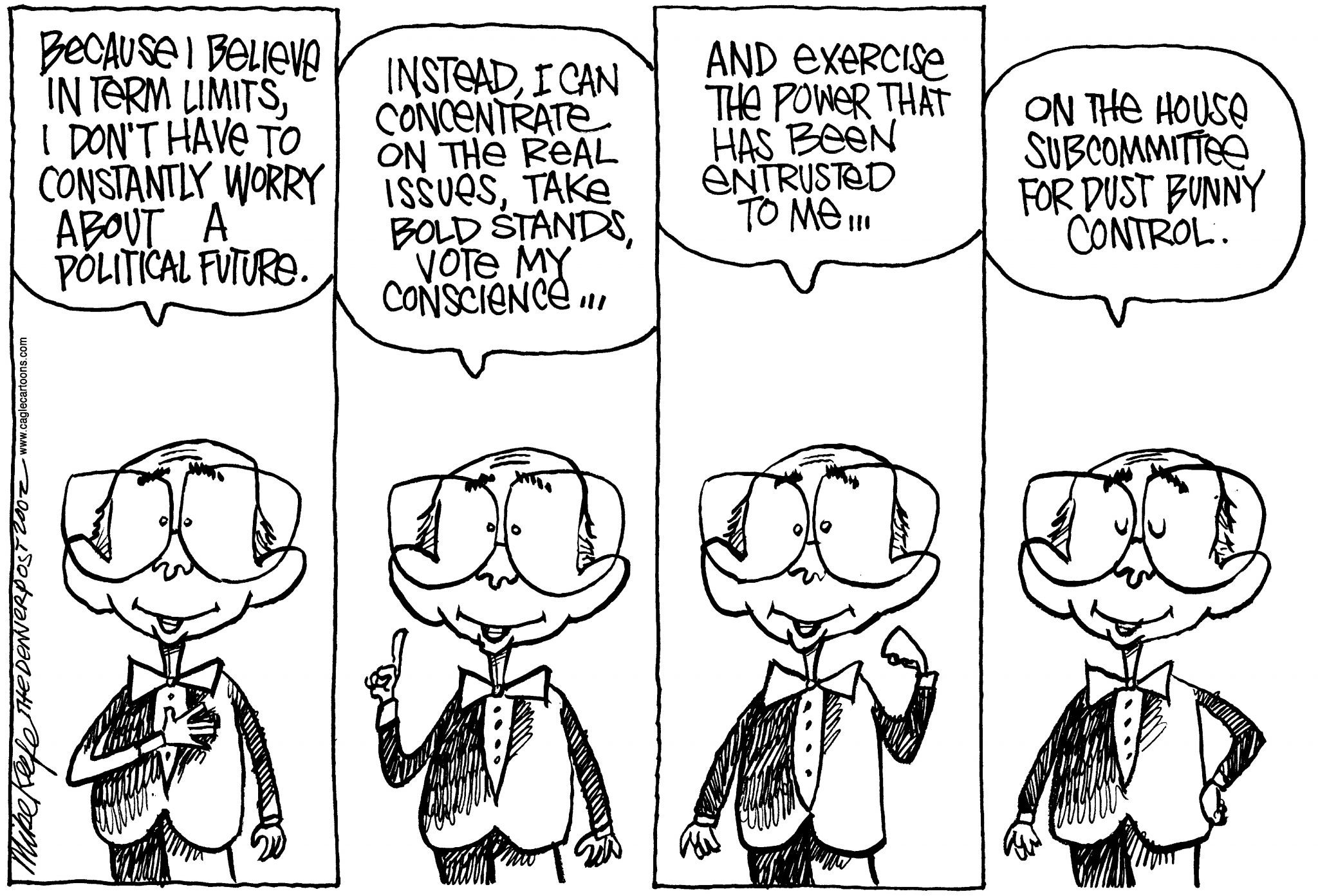BY DAVID PERRYMAN
 Last week Oklahoma’s 2nd District Congressman, Markwayne Mullin, once again brought the issue of term limits to the political forefront. Rep. Mullin had promised his constituents in 2012 that he would self-impose a six-year [three-term] limit on his service in the United States House of Representatives. The newsworthy element of that story was that while nearing the end of his third term, he decided that his work in DC was not done and he therefore would run again.
Last week Oklahoma’s 2nd District Congressman, Markwayne Mullin, once again brought the issue of term limits to the political forefront. Rep. Mullin had promised his constituents in 2012 that he would self-impose a six-year [three-term] limit on his service in the United States House of Representatives. The newsworthy element of that story was that while nearing the end of his third term, he decided that his work in DC was not done and he therefore would run again.
His announcement ignited a firestorm of allegations about “broken promises. Former United States Sen. Tom Coburn was particularly harsh when he went so far as to say that Mullin “had drunk the Kool-Aid” and that “the arrogance of power has affected his thinking and when a man’s word doesn’t mean anything, nothing else matters.”
However, the story behind the story is really more about voter participation than it is about Mullin reneging on his word. Oklahomans have long had a distrust of government. While the First Amendment to the U.S. Constitution addresses freedom from religious oppression and freedom of speech, the press and assembly, Oklahoma’s forefathers focused on the power of the people.
The exact language in Section 1 of Oklahoma’s Bill of Rights is, “All political power is inherent in the people; and government is instituted for their protection, security, and benefit, and to promote their general welfare; and they have the right to alter or reform the same whenever the public good may require it … ”
Those alterations and reforms have been frequent and often involve the process of Initiative and Referendum. Lloyd Noble II, freshly stinging from a campaign defeat, used considerable resources to promote an initiative petition for term limits on the state’s elected officials. In September 1990, when SQ 632 passed by a two-to-one margin, Oklahoma became the first in the country to impose a 12-year lifetime limit on state representatives and senators.
The motto that “Politicians, like diapers, should be changed frequently and for the same reason” humorous but wholly ignored the fact that voters always have the ability to “term limit” their own representative. In all honesty, term limits are more about limiting the terms of someone else’s representative than one’s own.
Legislators have brought some of this on themselves by undermining the intent of voters who clearly state their intent in initiative petition elections. Two recent examples are SQs 640 and 780.
SQ 640 was the 1992 ballot that passed by 565 to 44% and made it clear that any revenue raising measure must be approved by the people unless it received a 75% approval in both the House and the Senate. Legislative leaders this year tossed that requirement to the wind when they decided to pass revenue measures by a simple majority rather than negotiate about gross production taxes.
SQ 780 was the 2016 ballot initiative that passed by 58% to 42% and reclassified some drug and property crimes as misdemeanors instead of felonies. As a result, legislation was introduced to “save voters from themselves” and block other criminal justice reforms.
Another example of elected officials blatantly disregarding the will of the people involves SQ 662, adopted in September 1994. That ballot actually limited the terms of U.S. representatives [six years] and U.S. senators [12 years]. Despite the clear message [by a 67% to 33% vote] sent by Oklahoma voters, a federal court ruled that federal term limits violated the U.S. Constitution.
Despite the court’s ruling, the will of the Oklahoma voters was clear and Article 2, Section 12A remains on the books. One of Oklahoma’s congressmen is going on 24 years and another is at 14, both greatly exceeding the limits set by voters. Likewise, one of Oklahoma’s senators has nearly doubled the time that voters wanted set.
It is no wonder that one of the primary reasons that people don’t vote is that they believe that their vote doesn’t count. Unfortunately, neither the term limits imposed as a result of Lloyd Noble’s crushing defeat nor Markwayne Mullin’s reversal alleviate it one bit.
– David Perryman, a Chickasha Democrat, represents District 56 in the Oklahoma House








